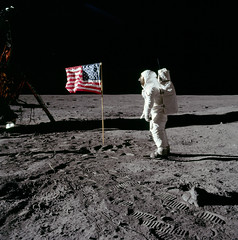As we celebrate the 50th Anniversary of the Apollo 11 lunar vehicle landing on the moon, we think of Neil Armstrong’s infamous first words upon stepping down on the surface. We think of the historic moment the American flag was planted and Buzz Aldrin saluted. We think about the families crowding around their television sets at home as they watched history unfold before their eyes and the ensuing cheers and celebrations when the astronauts completed their mission and safely returned home.
But what if disaster struck and the astronauts died on the moon? This joyful moment in American history would’ve been rewritten as a somber and tragic episode.
As crisis communications professionals, we have to be prepared for any scenario. Speechwriter William Safire prepared a statement for President Richard Nixon to read in case the worst happened. 50 years later, this remains an important step when preparing the crisis playbook.
Here’s what SVP Nick Peters said in the article, “6 Lessons From a Never-Delivered Apollo 11 Disaster Statement.”
“Having a range of template statements prepared in advance—that can be called up instantly and adapted to breaking scenarios on the fly—is a best crisis communications practice,” says Nick Peters, senior vice president of CommCore Consulting Group. “This is especially true if you know there is a specific risk in play, as was the case with Apollo 11.”
If a crisis were to land tomorrow, would your organization be prepared? Take our crisis plan assessment and find out!

